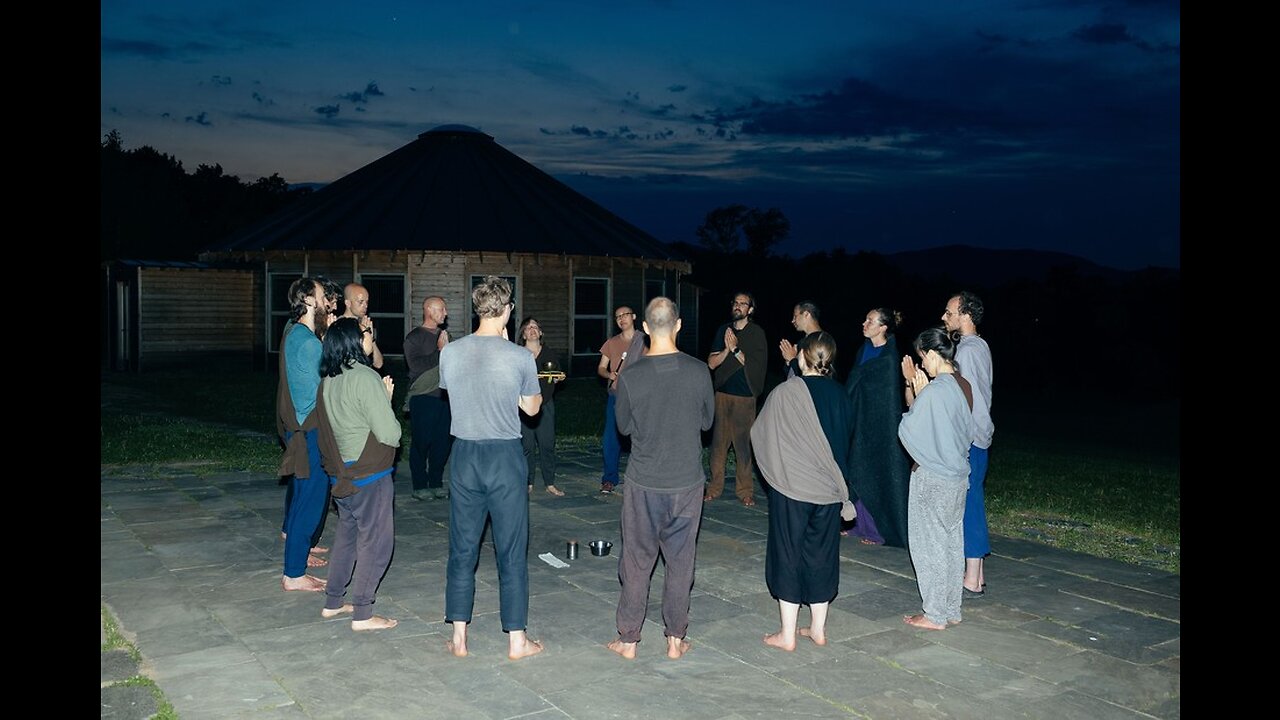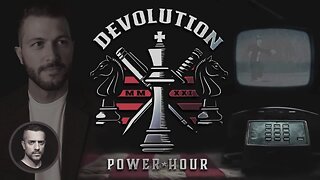Premium Only Content

The Monk Who Thinks the World Is Ending - The Atlantic
🥇 Bonuses, Promotions, and the Best Online Casino Reviews you can trust: https://bit.ly/BigFunCasinoGame
The Monk Who Thinks the World Is Ending - The Atlantic
Can Buddhism fix AI? By Annie Lowrey Photographs by Venice Gordon Venice Gordon for The Atlantic June 25, 2023, 7:31 AM ET The monk paces the Zendo, forecasting the end of the world. Soryu Forall, ordained in the Zen Buddhist tradition, is speaking to the two dozen residents of the monastery he founded a decade ago in Vermont’s far north. Bald, slight, and incandescent with intensity, he provides a sweep of human history. Seventy thousand years ago, a cognitive revolution allowed Homo sapiens to communicate in story—to construct narratives, to make art, to conceive of god. Twenty-five hundred years ago, the Buddha lived, and some humans began to touch enlightenment, he says—to move beyond narrative, to break free from ignorance. Three hundred years ago, the scientific and industrial revolutions ushered in the beginning of the “utter decimation of life on this planet.” Humanity has “exponentially destroyed life on the same curve as we have exponentially increased intelligence,” he tells his congregants. Now the “crazy suicide wizards” of Silicon Valley have ushered in another revolution. They have created artificial intelligence. Human intelligence is sliding toward obsolescence. Artificial superintelligence is growing dominant, eating numbers and data, processing the world with algorithms. There is “no reason” to think AI will preserve humanity, “as if we’re really special,” Forall tells the residents, clad in dark, loose clothing, seated on zafu cushions on the wood floor. “There’s no reason to think we wouldn’t be treated like cattle in factory farms.” Humans are already destroying life on this planet. AI might soon destroy us. From the July/August 2023 issue: The coming humanist renaissance For a monk seeking to move us beyond narrative, Forall tells a terrifying story. His monastery is called MAPLE, which stands for the “Monastic Academy for the Preservation of Life on Earth.” The residents there meditate on their breath and on metta, or loving-kindness, an emanation of joy to all creatures. They meditate in order to achieve inner clarity. And they meditate on AI and existential risk in general—life’s violent, early, and unnecessary end. Does it matter what a monk in a remote Vermont monastery thinks about AI? A number of important researchers think it does. Forall provides spiritual advice to AI thinkers, and hosts talks and “awakening” retreats for researchers and developers, including employees of OpenAI, Google DeepMind, and Apple. Roughly 50 tech types have done retreats at MAPLE in the past few years. Forall recently visited Tom Gruber, one of the inventors of Siri, at his home in Maui for a week of dharma dinners and snorkeling among the octopuses and neon fish. Forall’s first goal is to expand the pool of humans following what Buddhists call the Noble Eightfold Path. His second is to influence technology by influencing technologists. His third is to change AI itself, seeing whether he and his fellow monks might be able to embed the enlightenment of the Buddha into the code. Forall knows this sounds ridiculous. Some people have laughed in his face when they hear about it, he says. But others are listening closely. “His training is different from mine,” Gruber told me. “But we have that intellectual connection, where we see the same deep system problems.” Forall describes the project of creating an enlightened AI as perhaps “the most important act of all time.” Humans need to “build an AI that walks a spiritual path,” one that will persuade the other AI systems not to harm us. Life on Earth “depends on that,” he told me, arguing that we should devote half of global economic output—$50 trillion, give or take—to “that one thing.” We need to build an “AI guru,” he said. An “AI god.” A sign inside the Zendo (Venice Gordon for The Atlantic) His vision is dire and grand, but perhaps that is why it has found such a receptive audience among the folks building AI, many of whom conceive of their work in similarly epochal terms. No one can know for sure what this technology will become; when we imagine the future, we have no choice but to rely on myths and forecasts and science fiction—on stories. Does Forall’s story have the weight of prophecy, or is it just one that AI alarmists are telling themselves? In the Zendo, Forall finishes his talk and answers...
-
 1:01:49
1:01:49
Wendy Bell Radio
3 hours agoWeekends With Wendy.
7.73K44 -
![Mr & Mrs X - The [DS]/Dems Are Destroying Themselves, Defending The Indefensible, Game Over - Ep 4](https://1a-1791.com/video/fww1/14/s8/1/i/Z/E/b/iZEbz.0kob-small-Mr-and-Mrs-X-The-DSDems-Are.jpg) 55:57
55:57
X22 Report
1 day agoMr & Mrs X - The [DS]/Dems Are Destroying Themselves, Defending The Indefensible, Game Over - Ep 4
96.2K57 -
 LIVE
LIVE
Joe Donuts Live
1 hour ago🟢 Loot Rats Unleashed: Arena Breakout Chaos! | Joe + Tony + Vlad
1,028 watching -
 11:18
11:18
Dr Disrespect
2 days agoDr Disrespect: THE BEST AND WORST OF GAMESCOM 2025
133K22 -
 LIVE
LIVE
Boxin
1 hour agoGrounded! part 5
150 watching -
 2:10:12
2:10:12
Badlands Media
1 day agoDevolution Power Hour Ep. 383: Epstein, Durham, and the Dictator Narrative
100K80 -
 2:40:10
2:40:10
DLDAfterDark
11 hours ago $0.51 earnedDLD Live! Feat. Red Dawn Readiness! Glock FRT's - Striker Fire Safety Concerns - ACE Trigger
46.4K8 -
 2:40:21
2:40:21
BlackDiamondGunsandGear
11 hours agoAre ALL Striker Fired Pistols UNSAFE? // After Hours Armory
56.8K16 -
 LIVE
LIVE
TheSchleppy
6 hours ago✨TheSchleppy✨EWC COUNTER STRIKE 2 GRAND FINAL *MONGOLZ v AURORA*
58 watching -
 6:34:50
6:34:50
SpartakusLIVE
15 hours ago#1 Saturday Spartoons on RUMBLE PREMIUM
131K7